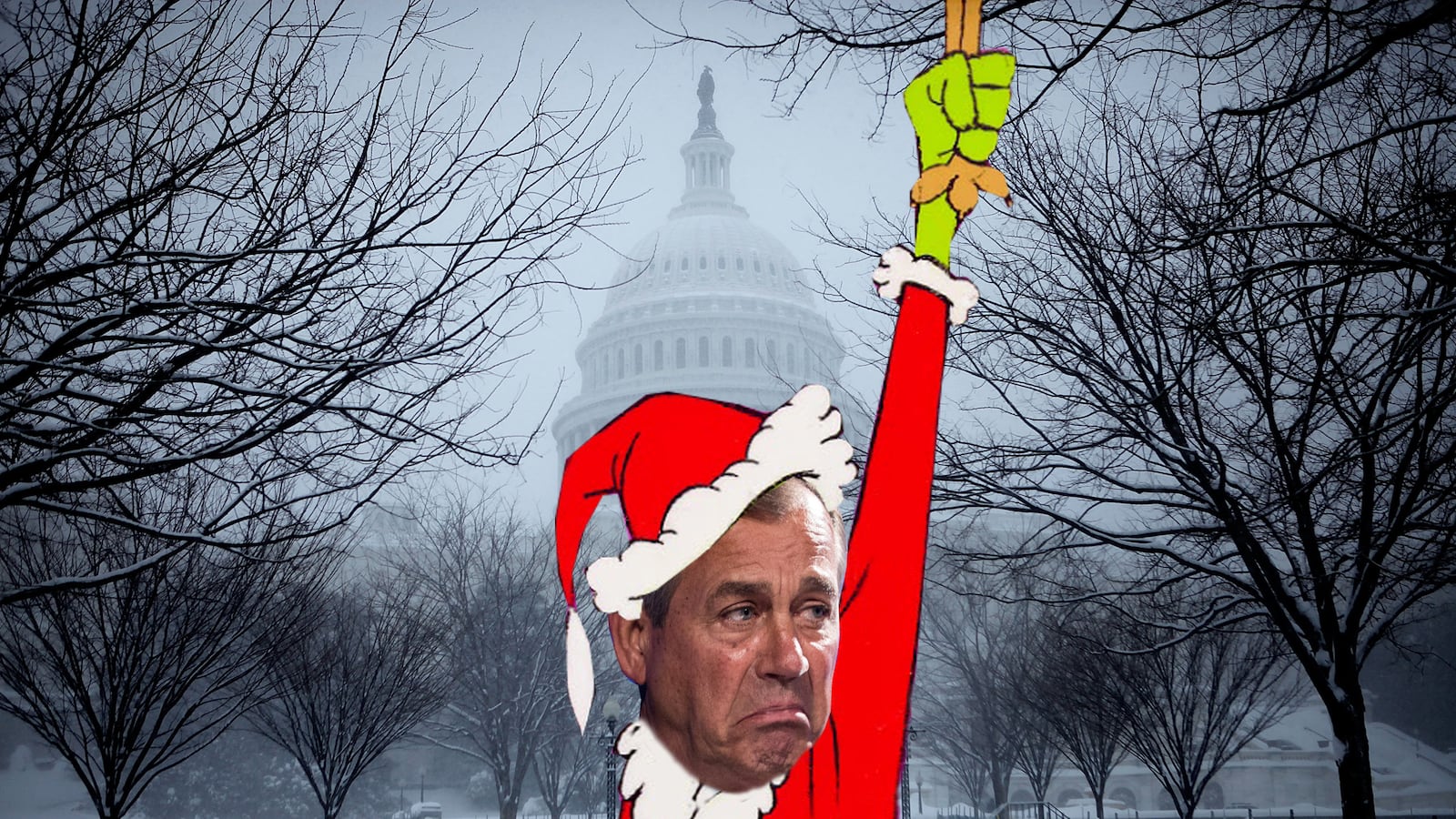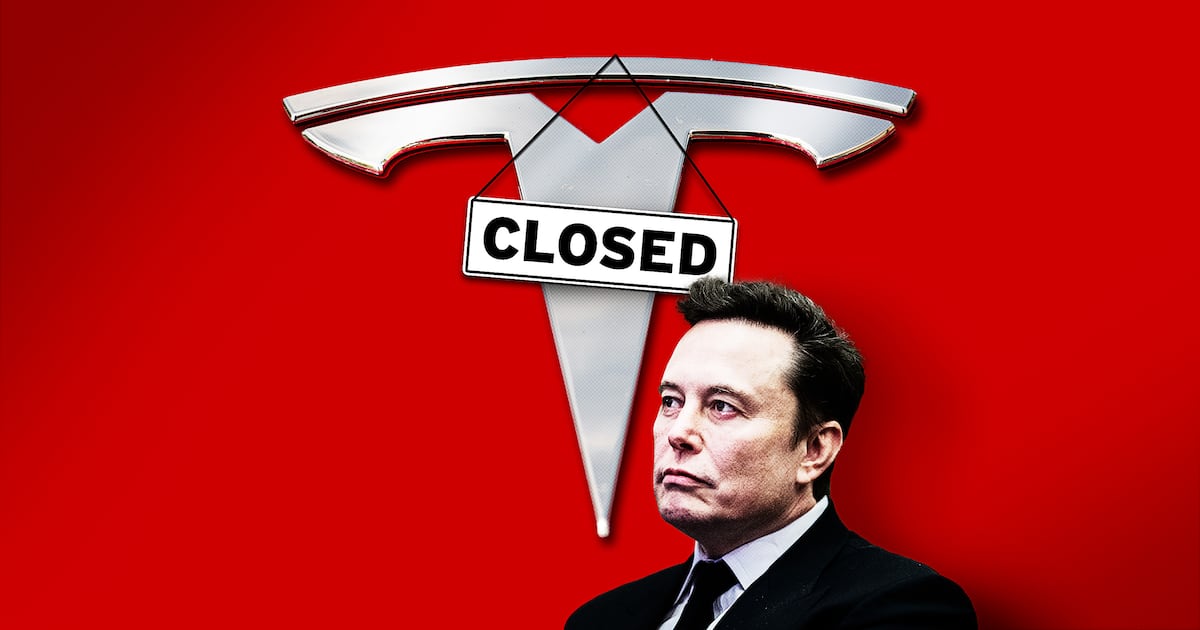Black Friday is only seven weeks away. And the government shutdown, now in its second week, is already casting a pall over the holiday shopping season.

You can ridicule, dump on, or boycott, the Christmas shopping season, but you can’t deny its importance. The fourth quarter is simply a huge one for the consumer economy. Advertising budgets are ramped up. Stores of all types stock up in anticipation of a massive rush of demand. The last several weeks can make or break the year for many large retailers.
So if you throw a wet blanket over the consumer economy at the beginning of the fourth quarter – like, say, shutting down the government, furloughing hundreds of thousands of workers, and threatening to default on the nation’s debt – you can do some damage. Especially if the holiday shopping season is front-loaded because Hanukkah falls in November rather than December.
Let’s count the ways.
A typical American’s main asset is the income he or she derives from a job. People make day-to-day financial decisions not based on how much savings they have, or how stocks did this week, or even on the value of their home. No, they live and die with their bi-weekly paycheck. And Americans spend virtually all of what they earn. (I’d tell you the latest data on the savings rate, about 3 percent, but the website where that data is housed is. . .closed.)
So when people lose their jobs, or are forced to work without getting paid, or even fear they lose their jobs, they tend to stop spending – on discretionary items, and on big-ticket items like cars, vacations, and durable goods. That doesn’t bode well for a big holiday shopping season. And the ripple effects of the shutdown go far beyond the several hundred thousand direct federal employees who have been furloughed. Think of all the people who work in tourism near national parks, or for defense contractors, or companies that can’t fulfill a new order because they need the Export-Import Bank or Small Business Administration to approve a loan. Based on a two-week shutdown, Macroeconomic Advisers has already reduced its fourth quarter growth estimate from 2.1 percent to 1.9 percent.
When people believe they’re going to lose their livelihood, their confidence plummets. Gallup’s measure of economic confidence – the difference between those saying things are getting better and those saying things are getting worse -- fell“to -19 in September from -13 in August, the worst monthly average since -19 in September 2012.” And in the days since the shutdown began, Gallup’s Economic Confidence Index has fallen off a cliff. It now stands at -35.
Often, poor confidence leads to poor sales. Indeed, there were signs that consumers were already pulling back in late September. Demand in the biggest retail sector – autos – rose only modestly last month. Thomson Reuters reported this week that same-store sales at a group of nine retailers it tracks were up a meager .4 percent in September, “lower than the 3.1 percent growth analysts had expected.”
And that was before the shutdown started. Every day, Gallup asks a group of consumers how much they spend every day, and then compiles rolling 14-day and 3-day averages. While August was a very solid month – the best in five years, according to Gallup – things have slowed down. And last week, self-reported spending plummetted. The three-day rolling average fell from $98 a day on October 6 to $69 on October 9 – down nearly 30 percent.
Should this trend continue, lots of retailers may wake up Christmas morning to find lumps of coal in their stockings. On October 3, the National Retail Federation forecast that sales in November and December would rise 3.9 percent from 2012. That may sound decent, but when you account for inflation it’s very modest growth. “Overall, retailers are optimistic for the 2013 holiday season, hoping political debates over government spending and the debt ceiling do not erase any economic progress we’ve already made,” said Matthew Shay, president and chief executive officer of NRF. “Our forecast is also somewhat hinging on Congress and the Administration’s actions over the next 45 days; without action, we face the potential of losing the faith Americans have in their leaders, and the pursuant decrease in consumer confidence.”
There are other ways in which the shutdown can spoil the holiday season – for retailers and workers. The last few months of any year are a huge hiring season. NRF said retailers should hire up to 780,000 seasonal works to deal with the Christmas shopping rush. (Last year, they hired 720,500.) Walmart alone is adding 55,000 and Amazon will hire 70,000. Some of those seasonal positions turn into permanent posts. But before large companies hire service workers, they have to check to make sure they are eligible to work in the U.S. through the e-Verify system. Which is shut down!
Employers who need documentation and information from the Internal Revenue Service, or the Immigration and Naturalization Service, might also be out of luck. Neither of those agencies is operating at full capacity. Should this continue, retailers may find themselves having a tough time filling positions, and some people may not be able to count on the income they had expected.
The shutdown is gumming up the works in other ways. Most retailers place their orders for Christmas shopping merchandise in the summer, and then take delivery in the fall – starting like, now. As we speak, container ships full of toys, electronics, and clothing are chugging their way across the Pacific Ocean. But getting those goods off the boat and onto trucks and rail cars requires the approval of a bunch of different agencies. The Department of Agriculture has to approve food imports, for example. Marianne Rowden, president and chief executive officer of the American Association of Exporters and Importers, told the Wall Street Journal that, aside from the U.S. Customs and Border Patrol, some 14 government agencies have “release and hold” authority on goods moving in and out of the country. Many of them are understaffed.
The American holiday shopping industry is a well-oiled machine with several interconnecting parts. Consumers have to possess the income and confidence to shop. Retailers have to have the right goods on the right shelves at the right times. And they need to have the right number of people on hand to meet all those orders. The shutdown is effectively throwing several wrenches into the gears.





